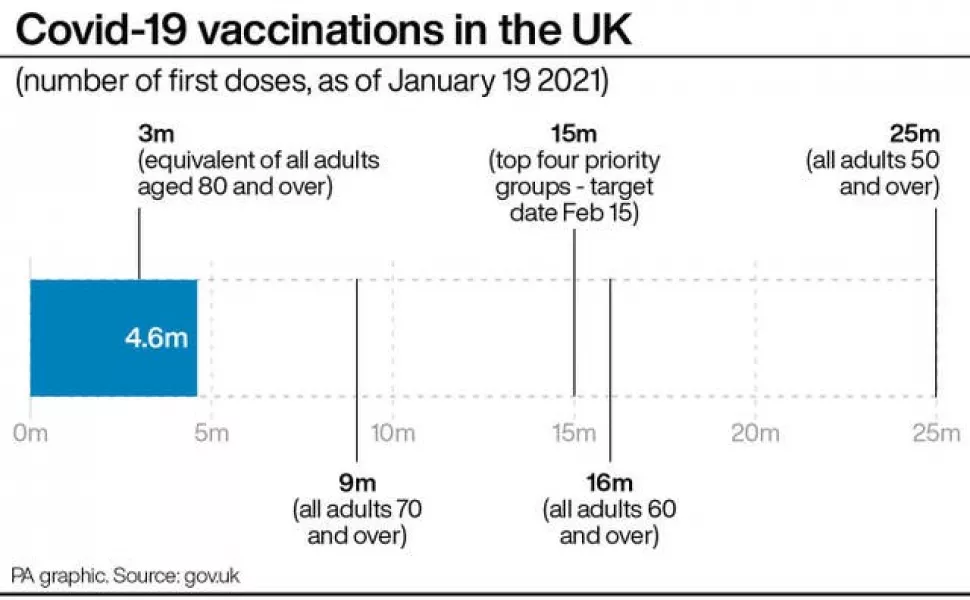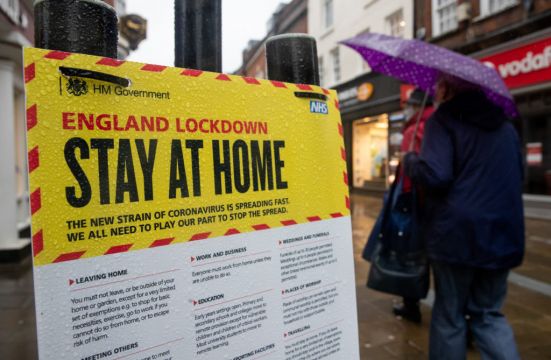The UK has recorded its deadliest day in the coronavirus pandemic, as the government’s chief scientific adviser warned parts of the NHS were like a “war zone”.
Official figures showed that January 12th saw the highest number of deaths recorded on a single day – with 1,110 Covid-19 fatalities, eclipsing the previous peak of 1,073 on April 8th, 2020.
A record 1,820 further deaths within 28 days of testing positive for Covid-19 were reported as of Wednesday, although there is a time lag between a patient dying and appearing in the statistics.
British prime minister Boris Johnson said the figures were “appalling” and warned “there will be more to come because what we’re seeing is the result of the wave of the new variant that we saw just before Christmas on December 18th, or thereabouts”.
The grim statistics appeared as chief scientific adviser Patrick Vallance gave a stark warning about the strain the pandemic was putting on hospitals.
In some cases it looks like a war zone
“This is very, very bad at the moment, with enormous pressure, and in some cases it looks like a war zone in terms of the things that people are having to deal with,” he said.
But there was “light at the end of the tunnel” in the form of the vaccination programme, which has so far seen 4,609,740 people receive a first jab.
Based on the latest figures, an average of 399,625 first doses of vaccine would be needed each day in order to meet the government’s target of 15 million of the highest priority patients receive a jab by February 15 – on Tuesday the total was 343,163.

Answering viewers’ questions on Sky News, Mr Vallance warned that vaccines were not doing enough of the “heavy lifting” at the moment to consider easing lockdown restrictions, with case rates needing to decline further before ministers could consider relaxing the measures.
The government has pledged that all those in the top priority groups, including the over-70s and frontline health and social care workers, will have received an offer to have had their first dose of the jab given to them by mid-February.
“The advice at the moment is vaccines are not going to do the heavy lifting for us at the moment, anywhere near it,” Mr Vallance said.
“This is about, I’m afraid, the restrictive measures which we’re all living under and carrying on with those.
“The numbers are nowhere near where they need to be at the moment, they need to come down quite a lot further – we need to make sure we stick with it.
“You go for a walk in the park or something, life looks normal; you go for a walk in a hospital, if you work in a hospital, you will see life not looking normal at all.”
He suggested tougher measures could have been needed earlier in the pandemic.
“I’m afraid that’s a grim message but that is what the evidence says – you’ve got to go hard, early and broader if you’re going to get on top of this. Waiting and watching simply doesn’t work.”
The prime minister insisted the vaccination programme remained “on track” despite “constraints on supply”.
Pfizer has said it is reducing deliveries for the next three to four weeks while it makes improvements to its factory in Belgium, while AstraZeneca expects to scale up to two million doses per week before or by mid-February.







